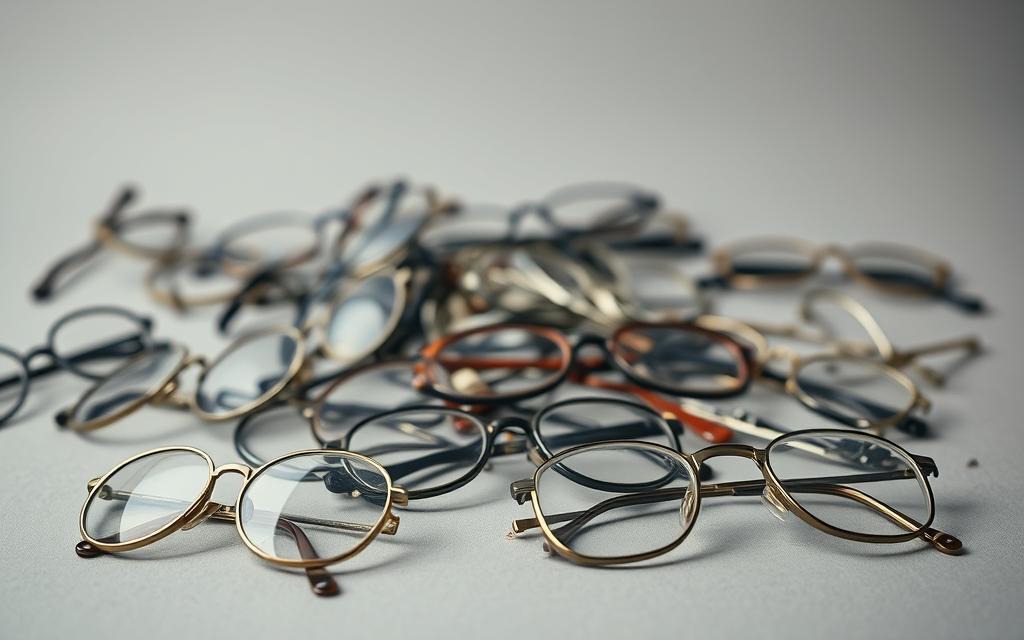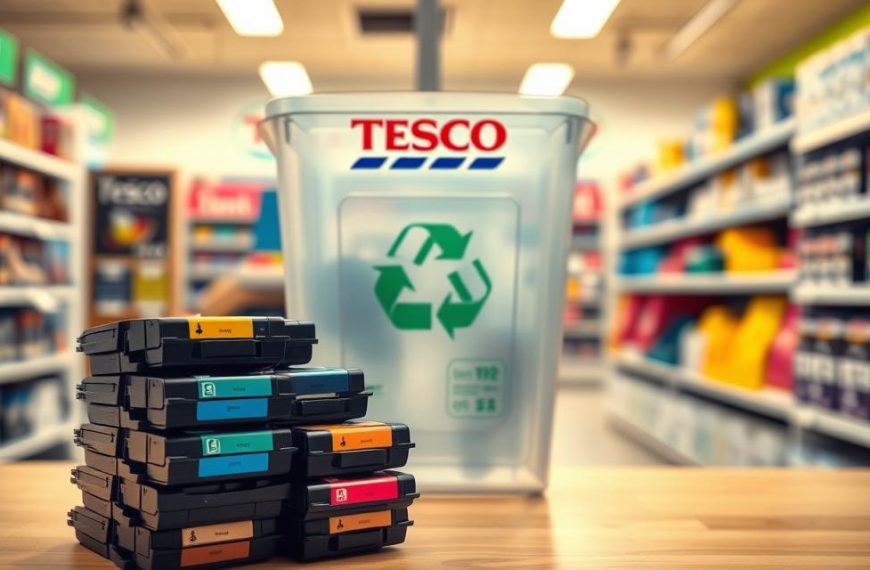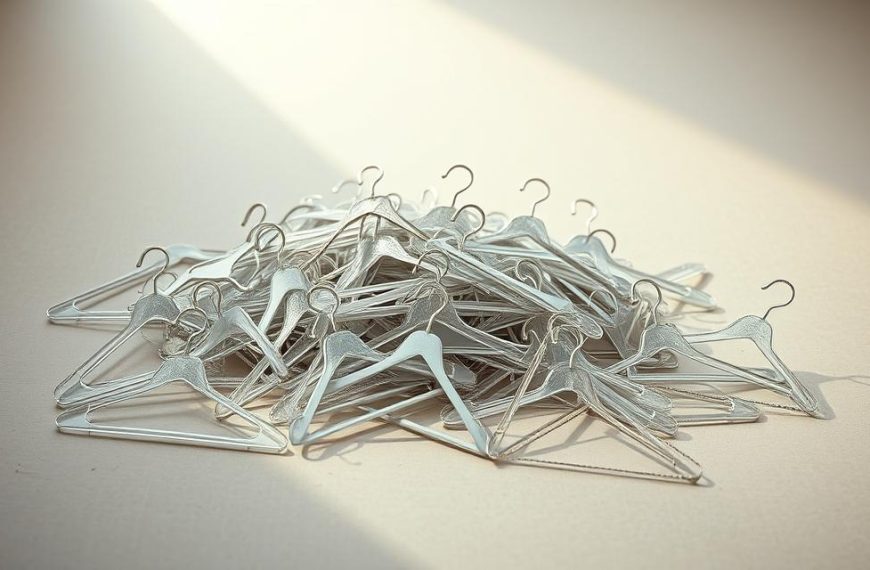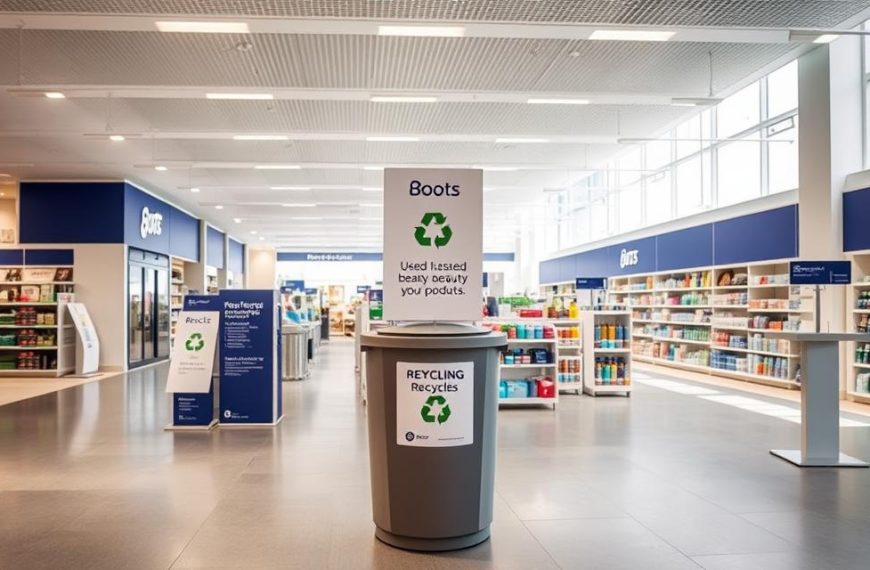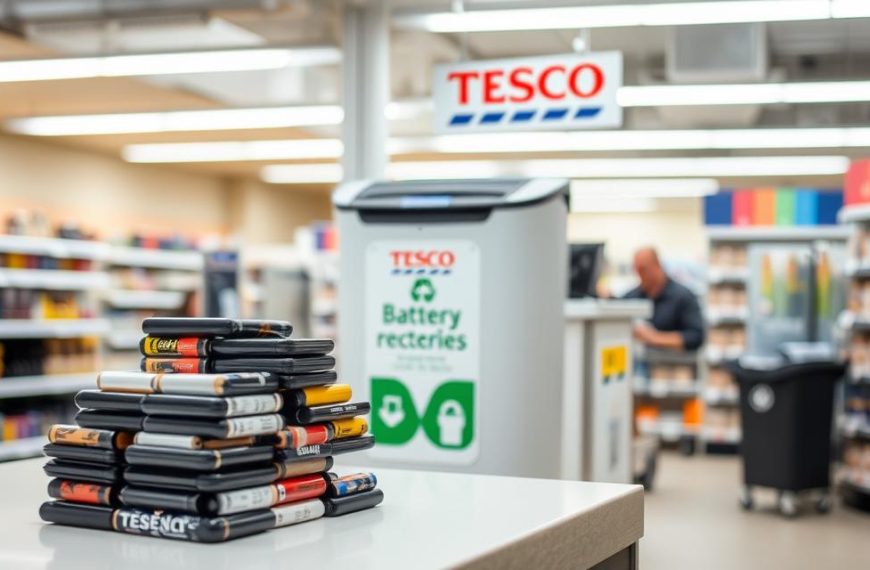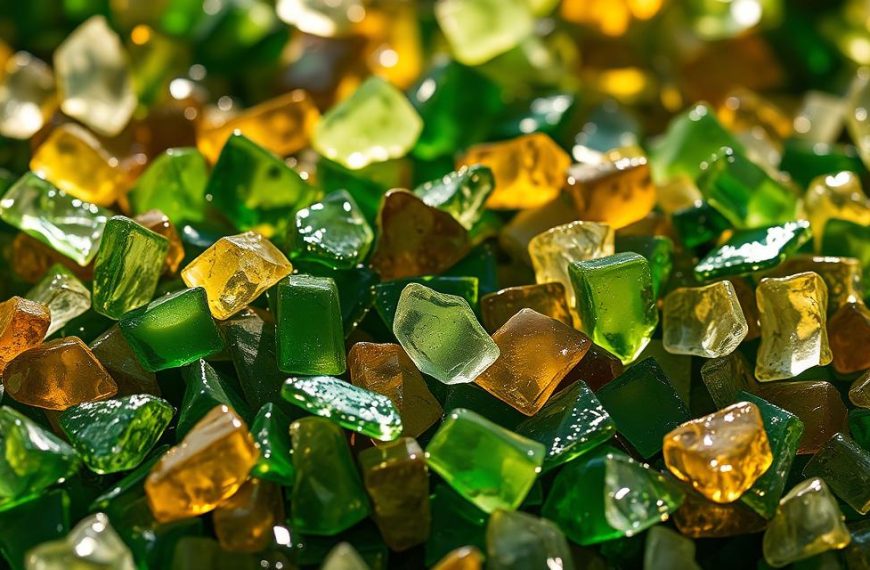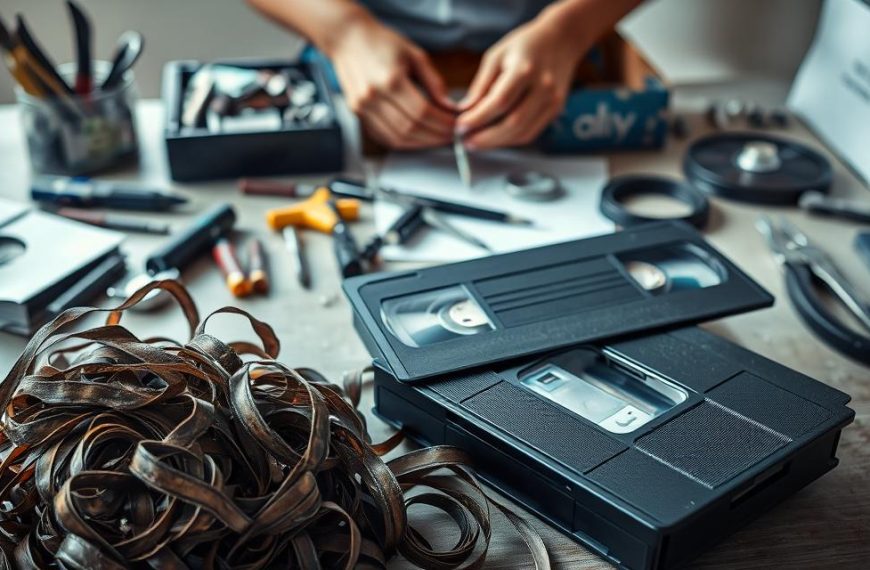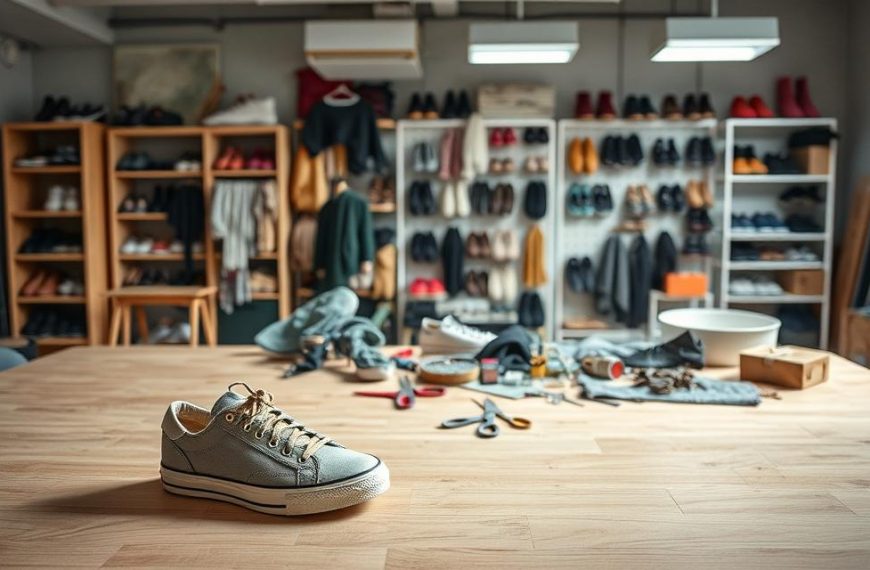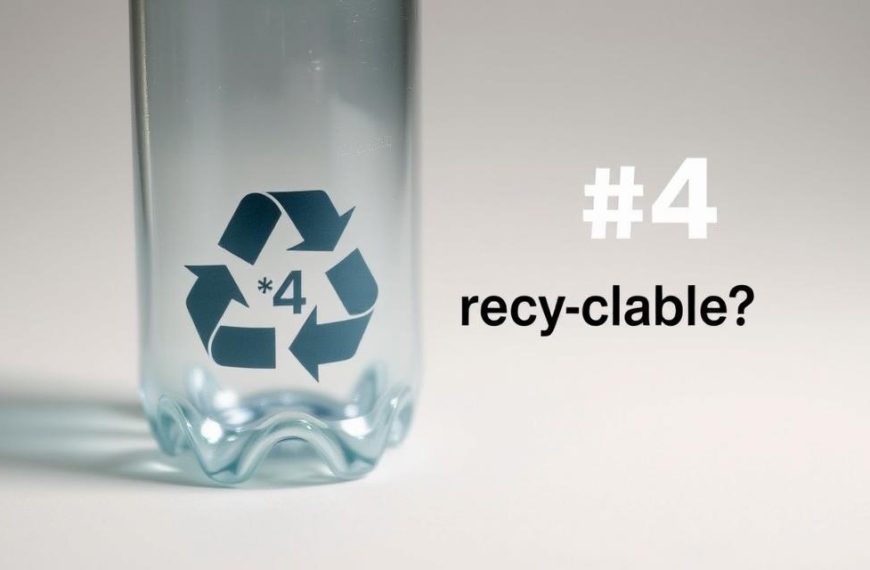With a staggering 321 million pairs of glasses sold annually in the UK, disposing of old spectacles has become a significant environmental concern. Rather than simply throwing them away, it’s essential to consider more sustainable options. Boots Opticians offers a convenient solution through its recycling programme, allowing customers to drop off their old glasses and contribute to reducing waste.
By recycling your old spectacles at Boots, you’re not only decluttering your home but also supporting sustainability initiatives. This comprehensive guide will walk you through the process, from preparing your glasses for recycling to understanding the environmental impact of improper disposal. You’ll also discover how Boots’ recycling programme compares to other options available in the UK, helping you make an informed decision.
The Environmental Impact of Discarded Spectacles
The disposal of old spectacles poses a significant environmental challenge in the UK. With millions of people relying on corrective eyewear, the volume of discarded spectacles is substantial, contributing to a growing waste management issue.
The Scale of Spectacle Waste in the UK
The UK generates a considerable amount of spectacle waste each year. This waste includes not just the frames but also lenses and other components, many of which are made from materials that are not biodegradable. The scale of this problem is often underestimated, with many individuals unaware of the environmental implications of their discarded glasses. Daily living aids, such as spectacles, are crucial for many, but their disposal requires careful consideration to mitigate environmental harm.
Why Spectacles Can’t Go in Regular Recycling Bins
Spectacles are complex items made from a variety of materials, including metals, plastics, and specialized lens materials. This complexity means they cannot be recycled through standard household recycling bins. Attempting to do so can lead to contamination of other recyclable materials. Instead, spectacles require specialized recycling processes, such as those offered by Boots Opticians, to ensure that their various components are handled appropriately. For those interested in learning more about recycling options, visiting the Boots recycling page can provide valuable insights into the process.
Understanding the limitations of regular recycling bins for spectacles highlights the need for dedicated recycling programs. These programs not only help manage waste but also contribute to environmental sustainability by repurposing materials that would otherwise end up in landfills.
Why Recycling Your Old Spectacles Matters
The importance of recycling old spectacles cannot be overstated, given the significant environmental and social benefits it offers. As we become more aware of our ecological footprint, practices like recycling are becoming increasingly important.
Environmental Benefits of Spectacle Recycling
Recycling spectacles helps reduce the amount of waste sent to landfills. Many spectacle parts, such as frames and lenses, can be recycled or repurposed, reducing the need for new raw materials. This process not only conserves resources but also decreases the environmental impact associated with manufacturing new eyewear. For instance, recycling metal frames can save energy and reduce the demand for mining raw materials. Moreover, some recycling programs, like the one operated by Recycline, ensure that materials are handled in an environmentally responsible manner.
Just as online beauty services and home appliances accessories are trending towards sustainability, the eyewear industry is also shifting towards eco-friendly practices. By choosing to recycle your spectacles, you’re supporting this movement. Although it might seem unrelated, the concept of sustainability in female hair removal services, where some salons are adopting eco-friendly products, parallels the sustainable practices in spectacle recycling.
Social Impact of Donating Used Glasses
Beyond the environmental benefits, recycling spectacles can have a significant social impact. Many organizations, such as Lions Clubs International, collect and redistribute used glasses to people in need around the world. These spectacles are often used in eye camps in developing regions, providing vision correction to individuals who cannot afford it. This not only improves their quality of life but also enhances their educational and employment opportunities. Electrical health diagnostics, including eye exams, play a crucial role in detecting vision problems early, and by donating your used glasses, you’re contributing to a broader cause that includes access to such diagnostics.
By recycling your spectacles at Boots, you’re participating in a global movement that addresses both environmental sustainability and social inequality. The redistribution of your recycled spectacles can make a tangible difference in the lives of others, providing them with essential vision correction. This act supports a more equitable distribution of resources and opportunities, aligning with the values of sustainability and social responsibility seen in various sectors, including health and beauty.
Understanding the Boots Spectacle Recycling Programme
Boots has established a comprehensive spectacle recycling programme to reduce waste and promote sustainability. This initiative is part of Boots’ broader commitment to environmental responsibility and sustainability.
Partnership with Recycline
Boots has partnered with Recycline, a non-profit organisation dedicated to promoting oral health and hygiene through the recycling of oral care products and other related items, including spectacles. This partnership enables Boots to provide a robust recycling programme for customers.
Recycline’s expertise in handling various materials ensures that the spectacle recycling process is efficient and environmentally friendly. By working together, Boots and Recycline aim to divert a significant amount of waste from landfills.
Types of Eyewear Accepted at Boots
The Boots spectacle recycling programme accepts a wide range of eyewear, including:
- Prescription glasses
- Reading glasses
- Sunglasses (both prescription and non-prescription)
- Broken frames
Boots welcomes eyewear made from various materials, such as metal frames, plastic frames, and combination materials, which are typically difficult to recycle through conventional means. The programme accepts glasses in any condition, from gently used to completely broken, ensuring maximum diversion from landfill.
Maintaining good health, including eye health, is crucial for overall wellbeing, much like diet weight management and regular visit men health check-ups. Similarly, taking care of one’s skin through skincare visit skincare routines is also important.
Step-by-Step Guide to Recycling Spectacles at Boots
The process of recycling your spectacles at Boots is designed to be hassle-free and environmentally responsible. By following a few simple steps, you can ensure that your old glasses are disposed of in a way that benefits both you and the environment.
Preparing Your Glasses for Recycling
Before taking your spectacles to Boots, it’s a good idea to prepare them for recycling. This involves cleaning the lenses and frames, and removing any accessories such as chains or cases. While these accessories are not always recyclable through the spectacle recycling programme, cleaning your glasses ensures they are in the best condition for recycling.
Tips for Preparation:
- Clean the lenses with a soft cloth to remove any dirt or smudges.
- Remove any detachable parts such as nose pads or temples if possible.
- Place the spectacles in a protective case to prevent damage during transport.
Finding Your Nearest Boots Opticians
Boots has numerous locations across the UK, making it convenient to find a store near you. To locate your nearest Boots Opticians, you can use the store locator on the Boots website. Simply enter your postcode or town name, and you’ll be provided with a list of nearby stores along with their addresses and contact details.
Visiting your local Boots store not only allows you to recycle your spectacles but also gives you the opportunity to explore their range of health and beauty products, including vitamins and supplements that support men’s and women’s health.
The In-Store Recycling Process
Upon arriving at Boots Opticians, the process is straightforward. Look for the designated spectacle recycling collection point, typically located near the optical department or at the customer service desk. No appointment is necessary; simply drop your old glasses into the clearly marked recycling container provided in-store.
The Recycling Process:
- No paperwork is required, making it a quick process.
- Staff are available to answer any questions about the recycling programme.
- The collection points accept multiple pairs at once.
- Your donated spectacles will be collected regularly and sent to Recycline’s processing facility.
By recycling your spectacles at Boots, you’re not only decluttering your space but also contributing to a more sustainable future. It’s a simple action that aligns with maintaining a healthy lifestyle, much like regular health visits for men and women.
What Happens to Your Recycled Spectacles?
The fate of your recycled spectacles is a story of transformation and sustainability. Once collected, they embark on a journey that not only reduces waste but also creates valuable resources.
The Journey from Collection to Recycling
After being collected at Boots, your recycled spectacles are sent to a specialized recycling facility. Here, they are sorted and processed according to their material composition. This step is crucial in ensuring that each component is handled appropriately for recycling.
The metals recovered from your spectacles, including hinges and screws, are melted down and repurposed into new metal products. This process conserves natural resources and reduces the need for virgin materials in manufacturing.
How Materials Are Repurposed
The recycling process transforms your old spectacles into various useful products. For instance, plastic components are converted into recycled plastic boards, which are used as sustainable alternatives in construction and manufacturing. These boards are particularly valuable in creating shop fittings and displays for opticians, promoting a circular economy within the optical industry.
| Material | Recycling Process | Repurposed Use |
|---|---|---|
| Metals | Melted down | New metal products across various industries |
| Plastic | Processed into recycled plastic boards | Sustainable alternatives in construction and manufacturing |
| Lenses | Specialized processing to separate coatings | Recycled into new products or used in industrial applications |
For men looking for grooming tools or considering a health visit, adopting sustainable practices like recycling spectacles is a step towards a more environmentally conscious lifestyle. Similarly, choosing eco-friendly products, such as those from No7 Makeup, or finding unique gift ideas at Boots that promote sustainability, can make a positive impact.
Boots vs Other Spectacle Recycling Options
When it comes to recycling old spectacles, several options are available in the UK, with Boots and Specsavers being two of the most prominent. Both retailers have established recycling programs, but there are differences in their approaches and benefits.
Comparing Boots with Specsavers Recycling Programme
Specsavers, a well-known optometrist chain, has partnered with MYGroup, a recycling and waste disposal company based in Hull, to offer a spectacle recycling service. Customers can drop off their old glasses at any Specsavers branch, where they are collected for recycling. This service includes not just glasses but also old glasses cases and broken glasses.
Boots, on the other hand, has its own recycling program in partnership with Recycline. This program not only recycles spectacles but also includes the additional environmental benefit of tree planting for every 100kg of spectacles recycled.
Advantages of Choosing Boots for Spectacle Recycling
Choosing Boots for spectacle recycling comes with several advantages. Firstly, the extensive network of Boots stores across the UK makes it highly accessible. Customers can combine their recycling visit with other shopping, such as purchasing health value packs or male grooming tools, making it a convenient option.
- Boots Opticians staff are trained to provide detailed information about the recycling process and its environmental benefits.
- For Boots Advantage Card holders, recycling visits can be combined with points collection, adding a small incentive.
- The company’s long-standing reputation for healthcare and ethical business practices provides confidence in responsible handling of recycled items.
- Boots regularly communicates its sustainability initiatives, keeping customers informed about the impact of their recycling efforts.
For customers already using Boots Opticians, recycling through the same provider creates a seamless end-to-end experience for their eyewear needs, much like how one might consider purchasing cameras photography accessories from a dedicated retailer.
While both Boots and Specsavers offer valuable recycling services, the choice between them may depend on individual preferences and needs, such as the desire to support a particular brand or to utilize additional services like those related to future renew no7 initiatives.
Alternative Ways to Recycle Spectacles in the UK
Beyond Boots, several alternative methods exist for recycling spectacles in the UK, catering to different needs and preferences. This ensures that individuals across the country can participate in sustainable eyewear practices, regardless of their location or preferred optician.
Recycling Through Specsavers
Specsavers, another major UK optician chain, also offers a spectacle recycling programme. Customers can return their old glasses to any Specsavers store, where they are collected and sent for recycling. This service is available for both Specsavers customers and those who have purchased their glasses elsewhere, making it a convenient option for many.
Lions Clubs International Collection Scheme
The Lions Clubs International have been collecting used glasses for recycling and distribution to those in need for many years. Their collection scheme operates through various drop-off points across the UK, including some opticians, community centres, and local Lions Club meeting places. This initiative not only recycles glasses but also supports charitable causes by providing vision correction to disadvantaged communities worldwide.
Asda Opticians Recycling Programme
Asda Opticians also participate in spectacle recycling by partnering with charitable organisations to collect and recycle old glasses. Customers can drop off their unwanted spectacles at Asda Opticians stores, contributing to both environmental sustainability and social welfare initiatives.
Other Local Opticians with Recycling Services
Many independent opticians across the UK offer spectacle recycling services, often in partnership with organisations like Recycline or through direct relationships with charitable initiatives. These local options provide convenient recycling points for those who prefer to support independent businesses or live in areas distant from major chain opticians. The Recycline website features a location finder tool that helps identify all participating opticians in your area, including both chains and independent practices.
| Organisation | Recycling Service Details |
|---|---|
| Specsavers | Recycles glasses returned to any Specsavers store |
| Lions Clubs International | Collects used glasses through various drop-off points across the UK |
| Asda Opticians | Recycles old glasses dropped off at Asda Opticians stores |
| Independent Opticians | Often partner with Recycline or charitable initiatives for recycling |
By supporting local independent opticians’ recycling programmes, individuals can strengthen community-based sustainability initiatives while achieving the same environmental benefits. As we look for the best christmas gifts or consider health men health initiatives, it’s also worth thinking about the impact of our eyewear choices and disposal methods. For those interested in men’s grooming, products like no7 mens no7 are popular, but let’s not forget the importance of recycling our old spectacles, even if we’re planning a visit baby child outing.
Postal Options for Recycling Your Spectacles
If you’re looking for a more convenient way to recycle your glasses, postal options are available. This method is particularly useful for those who cannot visit a Boots store or prefer the flexibility of recycling from home.
Sending Spectacles to Recycline
Recycline is a well-known organization in the eyewear recycling sector. They provide a postal address where you can send your old spectacles for recycling. This service is straightforward: simply pack your glasses in a suitable envelope or package and send them to the address provided on Recycline’s website. By doing so, you’re contributing to the recycling of eyewear materials and supporting charitable causes.
Postal Donations to Lions Clubs
The Lions Clubs International is another organization that accepts postal donations of spectacles. They have a long-standing history of collecting and redistributing eyewear to those in need. Your donated glasses can make a significant difference in the lives of individuals who cannot afford eyewear. To participate, you can download a prepaid envelope from their website or send your glasses to the specified address.
Retrospecced and Botaniq Postal Services
For those with vintage or designer spectacles, Retrospecced offers a unique postal recycling option. They specialize in reselling retro and vintage glasses, donating 20% of their profits to Vision Action and Lions Clubs International. You’ll receive a £5 voucher towards your next purchase if they accept your frames. Additionally, if your glasses are from the sustainable brand Botaniq, you can use their brand-specific postal recycling scheme. Both services provide prepaid posting labels, making it simple and cost-effective to recycle your old glasses.
These postal services not only provide a convenient way to recycle your spectacles but also support various charitable initiatives. By choosing these options, you’re contributing to a more sustainable eyewear industry.
Extending the Life of Your Spectacles
Regular care and maintenance can significantly extend the lifespan of your spectacles. By adopting a few simple practices, you can keep your glasses in good condition, reducing the need for frequent replacements and ultimately supporting environmental sustainability.
Reglazing Your Existing Frames
If your glasses prescription remains unchanged, but your frames are showing signs of wear, considering reglazing your existing frames can be a viable option. This process involves replacing the lenses in your current frames, which can be more cost-effective and environmentally friendly than purchasing new spectacles.
Many opticians, including Boots Opticians, offer reglazing services. They can assess whether your frames are suitable for reglazing and perform the necessary work to ensure your spectacles continue to meet your needs.
Repair and Restoration Services
Boots Opticians offers various repair and restoration services designed to extend the life of your spectacles. These services can significantly postpone the need for recycling or replacement, ensuring your glasses remain comfortable and properly fitted.
- Common repairs include replacing nose pads, tightening or replacing screws, realigning frames, and fixing or replacing temple tips – all of which can be performed while you wait at many locations.
- For more extensive damage, Boots can often source replacement parts from manufacturers or recommend specialist repair services for vintage or discontinued frames.
- Professional cleaning and maintenance services can remove built-up grime, restore the finish on metal frames, and address minor scratches on plastic frames.
- Some Boots Opticians locations offer ultrasonic cleaning services that can restore glasses to near-new condition by removing oils, dirt, and residue from hard-to-reach areas.
For valuable or designer frames, investing in professional repairs is often more economical and environmentally responsible than purchasing new spectacles. Boots staff can advise on whether repair is viable or if recycling would be more appropriate based on the condition of your spectacles.
Creative Alternatives to Recycling Old Spectacles
Rather than recycling your old spectacles, you might consider alternative uses that can benefit others and support local communities. Two such alternatives are selling designer frames online and donating to theatre groups, both of which can give your eyewear a new and meaningful purpose.
Selling Designer Frames Online
If your old spectacles are designer or vintage, you might be able to sell them online through platforms like eBay or specialized vintage eyewear marketplaces. This not only declutters your space but also puts unique items into the hands of collectors or those looking for distinctive accessories. When listing your items, include clear photos and details about the brand, condition, and any other relevant information to attract potential buyers.
Donating to Theatre Groups
Theatre groups and amateur dramatic societies often look for unique accessories and costumes, including eyewear, for their props and wardrobe. If you’ve got any retro or unique frames, they could be ideal as a prop or as part of a costume in an upcoming production. Local theatre groups, drama societies, and film production companies welcome donations of spectacles for use as props and costume accessories. Vintage, unusual, or distinctive frames are particularly valuable for establishing character and period authenticity in performances.
| Donation Options | Benefits |
|---|---|
| Local Theatre Groups | Supports local arts, unique props for productions |
| Drama Societies | Enhances costume authenticity, community engagement |
| Film Production Companies | Provides period-specific accessories, supports film industry |
When donating to theatre groups, frames without lenses or with non-prescription lenses are often preferred, as they’re easier and safer for actors to wear under stage lighting. This option gives your old spectacles a new life in the creative arts while supporting local cultural organisations that may operate on limited budgets.
Common Questions About Recycling Spectacles at Boots
If you’re thinking about recycling your spectacles at Boots, you’re likely to have a few questions about the service. The Boots spectacle recycling programme is designed to be straightforward and accessible, addressing various concerns you might have.
Can I Recycle Broken Glasses?
Yes, you can recycle broken glasses through the Boots programme. The service accepts spectacles in any condition, whether they’re broken, scratched, or simply outdated. This inclusivity ensures that more glasses are recycled, reducing waste.
Are Sunglasses Accepted?
Yes, Boots accepts sunglasses for recycling. Whether they’re prescription sunglasses or non-prescription, they can be recycled through their programme, contributing to environmental sustainability.
Can I Recycle Contact Lenses at Boots?
In addition to spectacles, Boots also offers a service to recycle contact lenses. This is part of their broader commitment to providing comprehensive recycling solutions for eye care products. You can return your used contact lenses to Boots stores for recycling.
Do I Need a Receipt or Proof of Purchase?
No, Boots does not require any receipt or proof of purchase to recycle spectacles through their programme. You can recycle glasses purchased from any retailer, not just those bought from Boots Opticians. The recycling service is completely free and available to everyone, regardless of whether you’re a Boots customer.
| Recycling Option | Description |
|---|---|
| Spectacles | All types, including broken or outdated glasses |
| Sunglasses | Prescription and non-prescription sunglasses |
| Contact Lenses | Used contact lenses can be returned to Boots stores |
By recycling your spectacles at Boots, you’re contributing to a more sustainable environment. The programme is designed to be simple, with no identification or personal information required when recycling spectacles. This no-questions-asked approach makes the recycling process accessible for everyone.
Tips for Maintaining Your Current Spectacles
Extending the life of your spectacles requires a combination of proper cleaning, storage, and timely repairs. By following a few simple tips, you can ensure your spectacles remain in good condition, providing you with clear vision and comfort.
Proper Cleaning and Storage
Cleaning your spectacles regularly is vital to maintain clear vision. Use a microfiber cloth and a gentle cleaning solution to wipe away dirt and smudges. Avoid using household cleaners or rough materials that can scratch the lenses. When not in use, store your spectacles in a protective case to prevent damage. Regularly cleaning and storing your spectacles properly can be likened to maintaining skincare visit skincare routines; both require consistent care to achieve optimal results.
| Maintenance Task | Frequency | Benefits |
|---|---|---|
| Clean lenses | Daily | Clear vision, reduced eye strain |
| Store in protective case | When not in use | Prevents scratches and damage |
| Professional check-up | Every 6-12 months | Early detection of potential issues |
When to Seek Professional Repairs
Despite your best efforts, your spectacles may sometimes require professional attention. If you notice loose screws, wobbly hinges, or misaligned frames, it’s time to visit men health professionals or, more specifically, opticians at Boots. They can repair and adjust your spectacles to ensure they remain comfortable and functional. For issues like scratched lenses or broken frames, professional repair services can often restore your spectacles to their original condition, much like addressing health sexual health concerns requires professional guidance.
In conclusion, maintaining your spectacles is a straightforward process that can significantly extend their lifespan. By following these tips and seeking professional help when needed, you can enjoy clear vision and comfort. Remember, taking care of your spectacles is part of overall men health men wellness, contributing to your overall quality of life.
The Future of Spectacle Recycling in the UK
The future of spectacle recycling in the UK is being shaped by innovative technologies and sustainable practices. As consumers become more environmentally conscious, the eyewear industry is responding with initiatives that not only reduce waste but also promote recycling and sustainability.
One of the key drivers of this change is the emergence of new technologies in eyewear recycling. These advancements are making it possible to recycle a wider range of materials, including complex frames and lenses.
Emerging Technologies in Eyewear Recycling
Emerging technologies are revolutionizing the spectacle recycling process. For instance, companies are developing machines that can efficiently separate and process different materials found in eyewear, such as plastics, metals, and acetate. This not only streamlines the recycling process but also improves the quality of recycled materials.
Furthermore, sustainable brands like Botaniq are pioneering closed-loop systems where products are designed from the outset to be easily recycled at end-of-life. This approach is setting a new standard in the industry.
Sustainable Eyewear Initiatives
Sustainable eyewear initiatives are gaining traction across the UK. Boots, for example, is expanding its range of sustainable eyewear options, including frames made from recycled materials, bio-based plastics, and responsibly sourced natural materials like wood and cork.
| Sustainable Material | Description | Benefits |
|---|---|---|
| Recycled Plastics | Made from post-consumer waste | Reduces landfill waste, conserves resources |
| Bio-based Plastics | Derived from renewable biomass sources | Lower carbon footprint, biodegradable |
| Wood and Cork | Responsibly sourced natural materials | Sustainable, unique aesthetic appeal |
As the industry continues to evolve, we can expect to see more innovative solutions and collaborative efforts between major opticians, manufacturers, and recycling specialists. These initiatives represent a significant shift towards viewing spectacles as part of a circular economy rather than disposable consumer products.
By embracing these changes, consumers can contribute to a more sustainable future while maintaining their health and wellbeing, including their eye health, which is closely linked to overall health, much like the importance of skincare visits and maintaining a balanced intake of vitamins and supplements.
How Recycling Spectacles Contributes to Corporate Social Responsibility
The practice of recycling old spectacles plays a crucial role in enhancing corporate social responsibility, particularly for retailers like Boots. By implementing a spectacle recycling programme, Boots demonstrates its commitment to reducing waste and promoting sustainability. This initiative not only benefits the environment but also contributes to the company’s social responsibility efforts.
Boots’ Commitment to Sustainability
Boots has shown a strong commitment to sustainability through its various initiatives, including the spectacle recycling programme. This programme allows customers to recycle their old spectacles at Boots stores, which are then processed and reused or recycled. By encouraging customers to visit their local Boots store, the company promotes a culture of sustainability and environmental responsibility. For instance, customers can combine their spectacle recycling with other health-related visits, such as picking up vitamins and supplements or consulting with health professionals during a visit.
The Wider Impact of Eyewear Recycling Programmes
Eyewear recycling programmes like Boots’ contribute significantly to reducing the estimated 321 million pairs of glasses sold annually in the UK that might otherwise end up in landfill. These initiatives help conserve valuable raw materials by recovering metals and plastics that can be repurposed, reducing the need for virgin material extraction. The programmes also create employment opportunities in the recycling sector, contributing to the growth of the green economy in the UK.
| Benefits of Eyewear Recycling | Environmental Impact | Economic Impact |
|---|---|---|
| Reduces landfill waste | Conserves raw materials | Creates jobs in recycling sector |
| Promotes sustainability | Reduces need for virgin material extraction | Contributes to green economy growth |
| Encourages responsible disposal | Decreases environmental pollution | Supports corporate social responsibility |
Furthermore, the visibility of in-store recycling points helps raise consumer awareness about proper disposal methods for complex products like spectacles. By making sustainable choices, such as recycling old spectacles and opting for eco-friendly products like No7 makeup, consumers can significantly reduce their environmental footprint. Corporate recycling programmes help normalise the concept of producer responsibility, where businesses take ownership of their products’ entire lifecycle.
Making Sustainable Choices When Buying New Spectacles
As consumers look to reduce their carbon footprint, selecting eco-friendly spectacles is a significant step. The eyewear industry is responding to environmental concerns by offering more sustainable options. When buying new spectacles, several factors can be considered to make a more sustainable choice.
Eco-Friendly Frame Materials
One crucial aspect is the material used in the frames. Some brands are now using recycled materials or bio-based materials that have a lower environmental impact. For instance, some frames are made from plant-based materials or recycled plastics. Boots Opticians stocks several eyewear brands with strong environmental credentials, including Botaniq, which offers a dedicated take-back scheme for their frames.
Additionally, some forward-thinking brands design their frames with end-of-life recycling in mind, using easily separable materials or mono-materials that simplify the recycling process.
Brands with Strong Environmental Policies
Look for brands that have transparent supply chains and publish sustainability reports detailing their environmental impact and improvement initiatives. Some brands available at Boots participate in one-for-one programmes, where each purchase funds eyecare or spectacles for people in developing countries. Brands that offer lifetime repair services demonstrate a commitment to longevity rather than planned obsolescence, representing a more sustainable business model.
- Boots Opticians stocks several eyewear brands with strong environmental credentials.
- Some brands participate in one-for-one programmes, funding eyecare for people in developing countries.
- Brands offering lifetime repair services promote longevity over planned obsolescence.
- Several eyewear manufacturers use renewable energy in their production facilities.
- Boots highlights brands that use minimal or plastic-free packaging.
By choosing brands with strong environmental policies, consumers are not only making a sustainable purchase but also sending a market signal that encourages other manufacturers to improve their practices.
Conclusion: Taking the First Step Towards Responsible Eyewear Disposal
Taking the first step towards responsible eyewear disposal has never been easier with Boots’ recycling programme. By choosing to recycle your old spectacles, you’re not only decluttering your home but also contributing to a more sustainable future. This simple action helps divert valuable materials from landfill and supports a circular economy.
The Convenience of In-Store Recycling
Boots’ in-store recycling programme removes barriers to responsible disposal, making it easy to incorporate sustainable practices into your routine shopping trips. Whether you’re upgrading your prescription, changing your style, or dealing with damaged frames, Boots provides a straightforward solution that benefits both the environment and communities in need.
Amplifying Impact Through Collective Action
The impact of individual recycling actions is amplified when combined with the efforts of thousands of other Boots customers across the UK, creating meaningful environmental benefits at scale. By participating in spectacle recycling, you’re helping to normalise sustainable behaviours and encouraging manufacturers to design products with end-of-life considerations in mind.
Exploring Sustainable Options
As you consider recycling your old spectacles, remember that this is just one of many sustainable options available. From reglazing existing frames to choosing eco-friendly materials for your next pair, the knowledge and expertise available from Boots Opticians staff can help you navigate these choices. By taking advantage of Boots’ spectacle recycling programme, you’re participating in a growing movement towards more conscious consumption and disposal of everyday items.
Making Informed Choices
Remember that responsible eyewear disposal is not just about the end of your glasses’ life cycle – it’s also about making informed choices when purchasing new spectacles that consider durability, repairability, and material sustainability. Boots’ commitment to providing accessible recycling options reflects their broader dedication to helping customers make choices that are good for both personal wellbeing and planetary health.
Joining a Sustainable Movement
By recycling your spectacles today, you’re contributing to a future where resource conservation and circular thinking become the norm rather than the exception in consumer behaviour. The next time you visit Boots for your health and beauty needs, consider bringing along any unwanted spectacles to make your trip even more purposeful and environmentally positive. You can also explore other sustainable services at Boots, such as their no7 online beauty offerings or health value packs, to further enhance your sustainable lifestyle.
In conclusion, recycling your old spectacles at Boots is a simple yet significant step towards more responsible consumption and waste management in your everyday life. By making this choice, you’re not only benefiting the environment but also supporting a more sustainable future for all.
